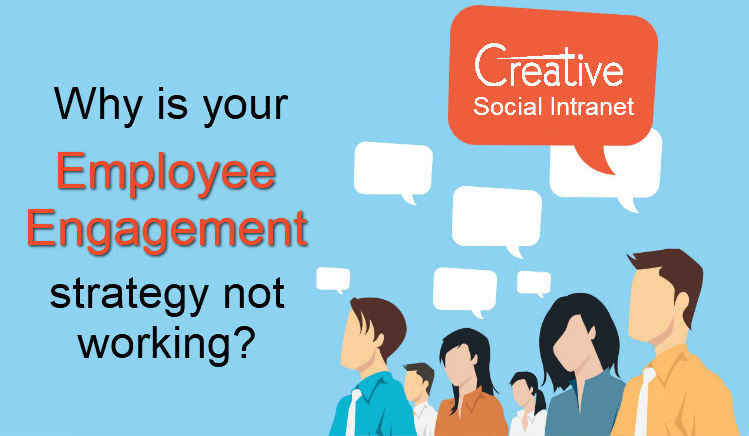Why is your Approach To Employee Engagement Not Working?
Date: 16-Apr-2019

If you are to believe the latest statistics, shows nearly 87% of employees across the globe are not engaged. Employee engagement is mostly referred to as a reward for today’s business leaders, and all this for a good reason.
A highly engaged workforce sets the difference between a company that outperforms its competitors and one that fails to grow or increase. Some reports even stated that in the United States alone, organizations spend millions of dollars to improve their employee engagement. Yet progress towards a fully engaged workforce has been very minimal.
Why?
The risk is high. A recent survey finds striking differences between the most engaged workplaces and the rest of the workplaces:
A more recent Gallup report states employee engagement is trending slightly in an upward direction in the United States at 34%, an 18-year high.
There is a sea of evidence that signifies the fact that healthier employees are more engaged and more productive employees.
If you have any knowledge of health and wellness, you will know the importance of regular exercise, a healthy diet, stress management, good sleeping habits, strong and healthy relationships, and a pleasing career.
However, wellness often turns out to be its own isolated bucket consigned to the HR department. Interview a few executives and their CEOs, and ask the following questions about their employee engagement with their work.
Fundamentally, a sense of the overall employee experience is regarded as a feeling of total immersion in the work itself. Such captivation generates a “flow state,” in which the work becomes its own reward. Every business determines its progress by metrics and has big targets and strikes to achieve them. However, this process has to be its own reward.
Leaders will need to practice deep intense listening in order to arrive at the point where work becomes its own reward. They have to engage with the employees on such an individual basis that they find a sweet spot where personal and organizational purposes can be met. They also need to craft teams that take challenges and bring out the best in each team member too. So let’s conclude it this way, employee engagement is not an HR issue, it is a leadership issue.
We need to explore the way we think and talk about employee engagement and wellness. Corporate wellness programs are mostly driven by anxieties about healthcare costs. Without a doubt, this is a valid concern, and it is undoubtedly better to invest forthrightly in defensive measures rather than pay at the back end on costly healthcare intercessions.
We should design wellness programs more widely as proactive measures are mechanized toward getting the best out of our employees as well as us. We generally tend to think of peak performance as something that belongs to the world of cream-of-the-crop athletes. But instead with the help of mind-body connection, it is within reach for all of us, in our own way.
We need to take exercise more seriously. Exercise stipulates not only our heart, body, and lungs, but also our brains. Even in adults, exercise promotes better ability to focus leading to a critical element in achieving less proneness to distraction, depression, and anxiety.
At Creative Social Intranet we also are better able to adapt to fast-growing and unexpected change, an absolute must in today’s disruption-driven economies. When someone has a nimble mind, we say they are good at thinking. The conditional connection between mind and body is no misfortune. If we can speak about well-trained athletes, we can speak about well-trained employees.
At Creative Social Intranet we work holistically with our clients to figure out a wellness regimen program that addresses each person as a whole. We frame this program in such a manner that concentrates on overall life goals, not just tapered business or health goals.
ENGAGEMENT DRIVE PERFORMANCE